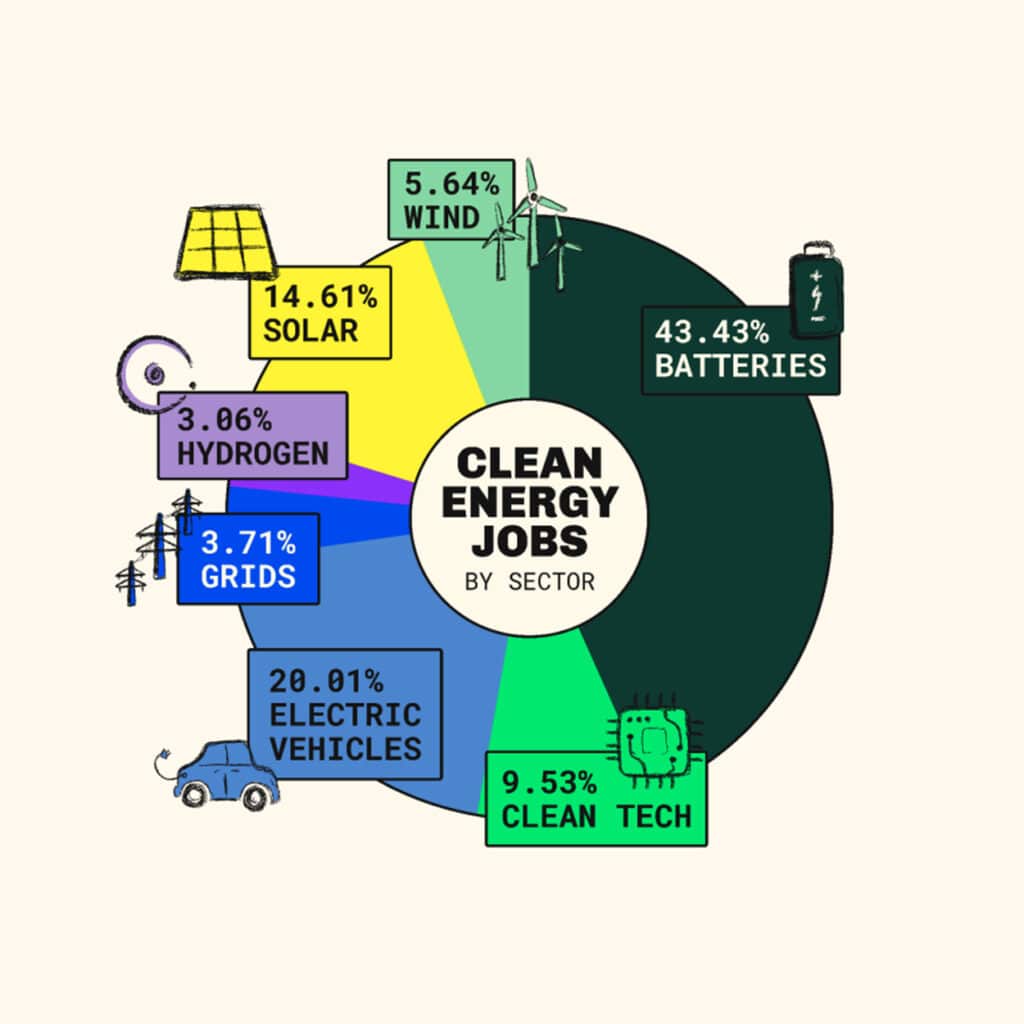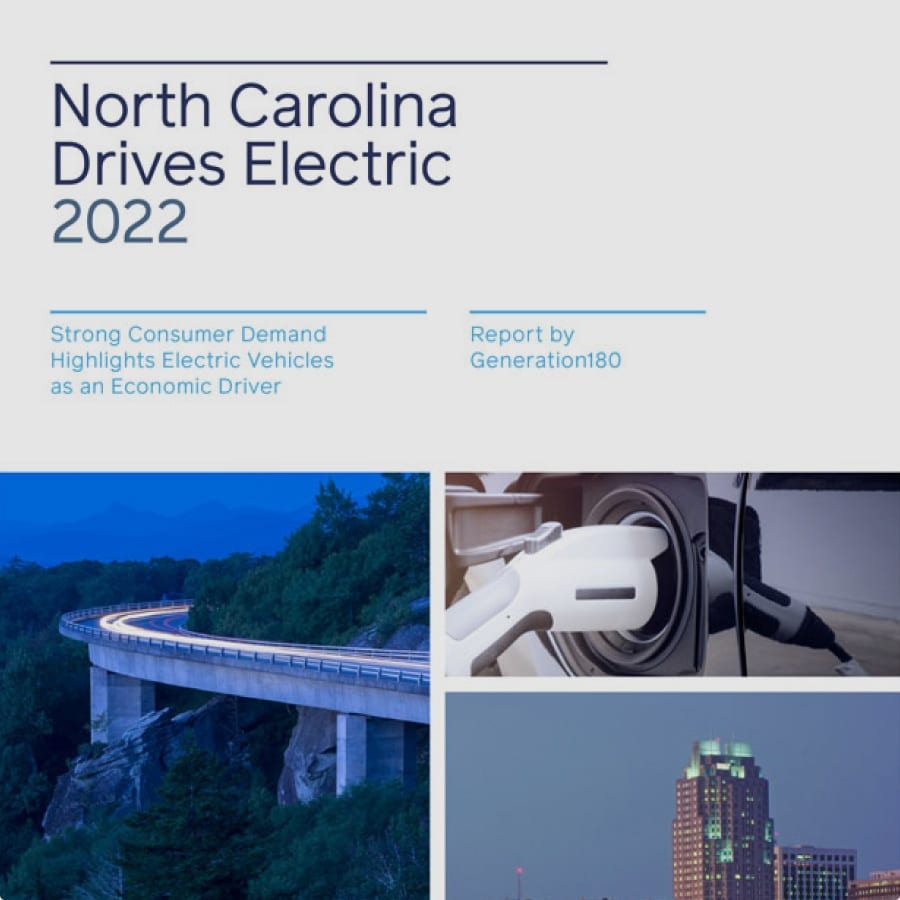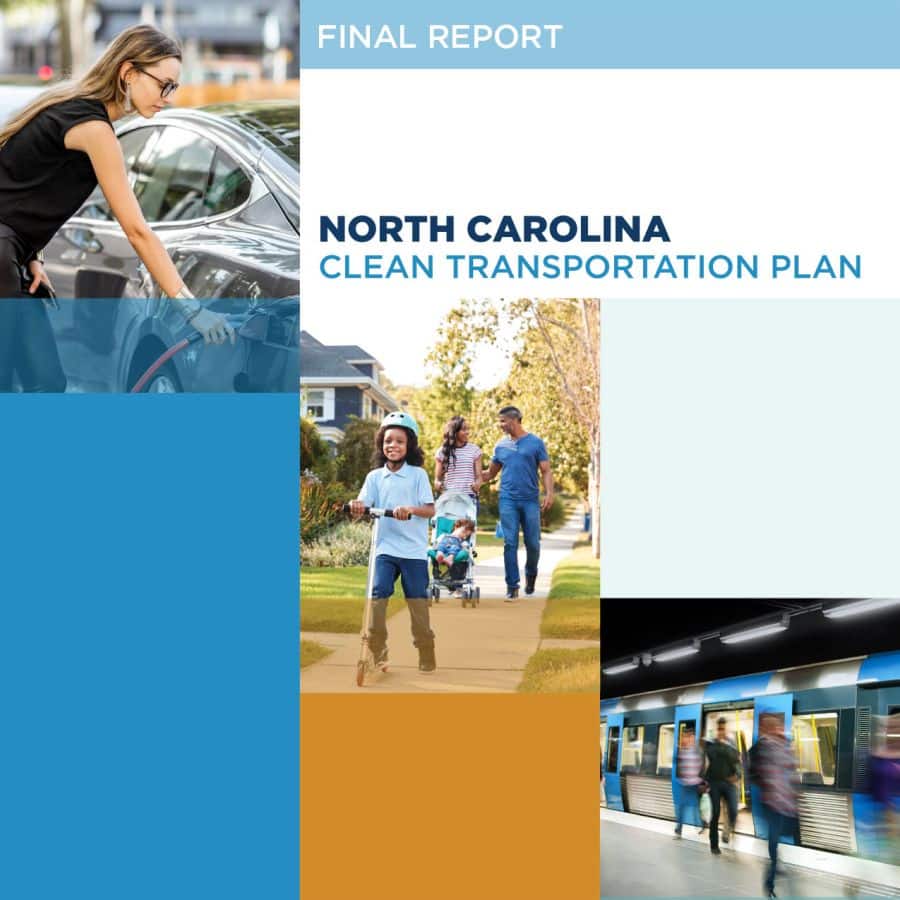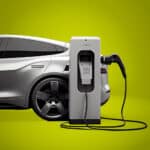ELECTRIFY YOUR LIFE
North Carolina

As North Carolina transitions to a 21st-century clean energy economy, electric vehicles will play an important role in achieving many of the state’s clean energy, climate resilience, economic, and public health goals.

North Carolina is having a clean energy boom
Thanks to the clean energy plan, North Carolina is becoming a clean energy powerhouse as a hub for batteries and EV production. Across the state, new clean energy projects have already spurred more than $18.75 billion in investment, the fourth highest nationally, and created over 9,886 good-paying clean energy jobs, the ninth highest in the country.
Read our North Carolina Drives Electric 2022 Report
The report provides a “State of the State” of electric vehicles for policymakers, advocates, and engaged North Carolinians. The report provides an overview of the benefits of and barriers to electric mobility in the state and findings from Generation180’s representative, statewide survey on transportation electrification clean energy.

Key Findings
of North Carolinians have a positive perception of electric vehicles
of North Carolinians are likely to consider buying an EV for their next car purchase
of North Carolinians ranked savings on maintenance and fuel costs as the #1 influence factor when considering a future EV purchase
of North Carolinians think it is important for North Carolina to reduce its dependence on fossil fuels and transition to clean energy
of North Carolinians support North Carolina offering an EV incentive
Transportation Zero Emissions Vehicles (ZEV) Plan
The North Carolina ZEV Plan (A Strategic Plan for Accelerating Electric Vehicle Adoption in North Carolina) outlines four key areas where the state can provide support for potential EV buyers: Education, Convenience, Affordability, and Policy.
The North Carolina ZEV Plan aims to reduce economy-wide greenhouse gas emissions to at least 50% below 2005 levels by 2030 and achieve net-zero emissions no later than 2050. It also aims to increase the total number of registered zero-emission vehicles in North Carolina to at least 1.25 million by 2030. An executive order from Gov. Roy Cooper also established a goal that by 2050 zero-emission vehicles will comprise 50% of all in-state vehicle sales.


North Carolina Clean Transportation Plan
The North Carolina Clean Transportation Plan (NCCTP) is a guidance document that provides a coordinated strategy for accelerating decarbonization in the transportation sector. The plan outlines how North Carolina can prepare for a clean transportation future and provide equitable outcomes for everyone. The NCCTP was co-created with local, regional and state agencies; transportation providers; non-profit organizations; social justice and equity focused groups; environmentally focused groups; academic partners; clean cities coalitions; advocacy groups; utility providers; and private companies.

Generation180 is proud to be a member of North Carolina Sustainable Energy Association (NCSEA), which works to enable clean energy jobs, economic opportunities, and affordable energy options for North Carolinians.
Transportation News in North Carolina
Read news about clean energy transportation progress in North Carolina.












